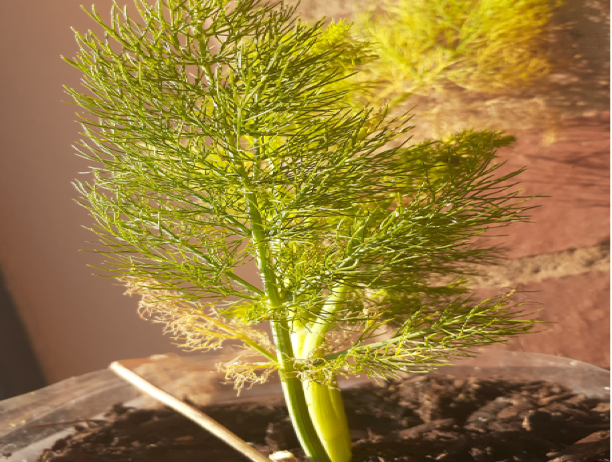
 This weekend while I was working on our patio herb garden in Midrand I discovered that all the fennel herbs were infested with pests and some leaves were turning yellow.
This weekend while I was working on our patio herb garden in Midrand I discovered that all the fennel herbs were infested with pests and some leaves were turning yellow.
I paused for a moment to think about how to solve this problem. I remembered some literature I read a while back that explains the importance of ensuring that the soil has the correct acidity/alkalinity for plants to thrive. I also learnt that a home-made mixture of crushed chilies, mild liquid soap and vegetable oil is an effective natural pesticide for an organic garden. The question related to today’s topic is: Is it truth or is it a fact that this homemade mixture will eliminate the pests in our herb garden?
In my earlier posting I mentioned that there are different views about what constitutes fact, truth and reality, and this is an important subject to understand as we consider epistemology.
I view a fact as a reality that cannot be logically disputed or rejected without additional verifiable facts, and or experience to oppose such facts. For example, if a mountain climber falls off a cliff while climbing a mountain, the force of gravity will attract the mountain climber towards the earth. It does not matter how great our reasoning skills are, we cannot dispute the fact that when a mountain climber falls off a cliff he or she will be attracted to the earth. No amount of reasoning will change this fact. The outcome of a fact in the absence of opposing facts is the truth, which forms our reality. Reality then can be derived from facts.
Let us look at governance. If we say poor governance results in poor company performance and eventually hastens the demise of companies, would you say this statement constitutes a fact, a reality or truth?
Truth in my view, is a reliable picture of how things are in reality. When we say we know something to be true we have to provide rational reasons that establish the veracity, trustworthiness and factual correctness of this knowledge. This is what epistemology is all about. It is how we acquire knowledge to form a reasonably accurate picture of our reality.
Going back to our earlier example: we want to establish whether the homemade pesticide works or not? To acquire knowledge around this subject, we have to design some kind of an experiment, where we spray a number of fennel plants and create a control set of plants that we do not spray. We then observe over time whether our home made mixture solves the problem or not. The epistemological stance of acquiring knowledge to test whether the home made mixture works or not is known as positivism. Click here to download the presentation that provides an explanation of different epistemological positions as well as basic beliefs that inform such positions.
Prof P Msweli
Executive Dean and CEO (A)
School of Business Leadership
14 September 2020
Publish date: 2020-09-14 00:00:00.0
Contact the Marketing and Communication office: Ms Thami Kaunda at kaundn@unisa.ac.za
011 652 0339
Telephone: +27 11 652 0248 / +27 11 652 0291
Email: sbl@unisa.ac.za
Physical Address:
Cnr Janadel and Alexandra Avenues
Midrand, 1686
Gauteng, South Africa
Download map & directions (PDF)